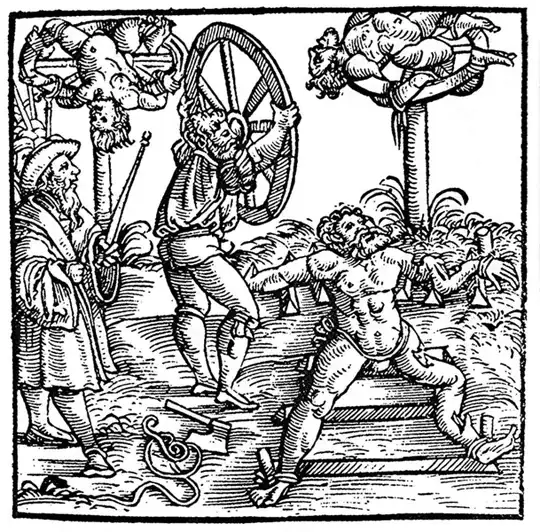An article by Rick Falkvinge best categorized as political opinion / commentary on copyright enforcement claims that:
A few centuries ago, the penalty for unauthorized copying was breaking on the wheel. It is a term we’re not very familiar with these days, but it was a form of prolonged torturous death penalty where the convict first had every bone in his body broken, and then was weaved into the spokes of a wagon wheel and set up on public display.
...
The [French] King responded by introducing penalties for pirating these fabrics. Light punishments at first, then gradually tougher. Towards the end, the penalty was death by public torture, drawn out over several days. And it wasn’t just a few poor sods who were made into public examples: sixteen thousand people, almost entirely common folk, died by execution or in the violent clashes that surrounded the monopoly. In practice, everybody knew somebody who had been horribly executed for pirating.

Illustration from Wikimedia
Were such numbers of people executed by "Breaking On the Wheel" for copying fabrics in pre-revolution France?